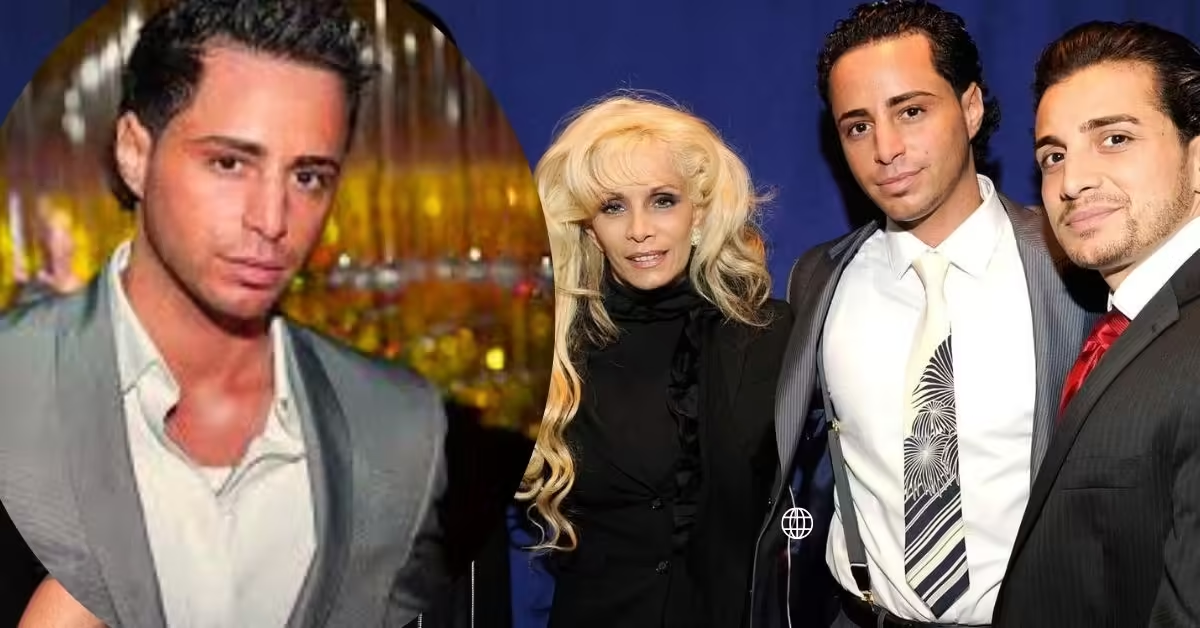Introduction: Who Was Frank Gotti?
Frank Gotti, the youngest son of John Gotti Sr., the infamous leader of the Gambino crime family, has a short yet impactful story that remains part of mob history. While his life ended in a tragic accident, his name is often remembered due to the lasting influence of the Gotti family on New York’s organized crime scene. In this article, we explore Frank Gotti’s life, the tragedy that befell him, and how it shaped the Gotti family’s legacy.
Early Life and Family Background of Frank Gotti
Frank Gotti was born into one of the most infamous families in the United States. His father, John Gotti Sr., was a central figure in organized crime and eventually rose to become the head of the Gambino crime family. Raised in Queens, New York, Frank’s early life was deeply intertwined with the unique culture of the Gotti family and their close connections within New York’s underworld.
As the youngest of John Gotti Sr.’s children, Frank was protected by his siblings, particularly by his older brother, John A. Gotti, often called Junior. Despite the dangerous environment surrounding the family, Frank had a relatively normal childhood. Friends and family recall him as a joyful and kind-hearted boy. However, his family’s background cast a shadow over his brief life, as the Gotti family’s activities were closely watched by law enforcement.
The Gotti Family Legacy: A Brief Overview
The Gotti family legacy is deeply rooted in the history of the New York City mafia. John Gotti Sr. became a notorious figure due to his charisma and his audacious disregard for the law, traits that made him both feared and admired. Under his leadership, the Gambino family became one of the most powerful crime organizations in the United States.
Frank’s siblings, particularly John A. Gotti, would later play significant roles in the Gotti family’s activities. The family’s influence in New York extended beyond crime; they also impacted popular culture, with the Gotti name becoming synonymous with mobster mythology. However, Frank’s legacy is more personal, marked by tragedy rather than crime.
The Tragic Accident: How Did Frank Gotti Die?
Frank Gotti’s life was cut short on March 18, 1980, when he was only 12 years old. The incident took place near his home in Howard Beach, Queens, when Frank was struck by a neighbor’s car while riding a mini-bike. The neighbor, John Favara, reportedly failed to see Frank as he crossed the street, resulting in a fatal accident.
This tragic event left the Gotti family devastated, and it is often cited as one of the most significant moments in John Gotti Sr.’s life. The accident was a terrible loss for the family, and it had lasting implications, especially since it involved a close neighbor. The family’s reaction to the accident would become one of the most talked-about aspects of Gotti family lore.
Impact of Frank Gotti’s Death on the Gotti Family
The death of Frank Gotti was a pivotal moment for his family, leaving deep emotional scars. John Gotti Sr., who was known for his hard exterior, was said to have been devastated by the loss. Friends and relatives noted a change in his demeanor, with many believing that this personal tragedy influenced his later actions.
In the months following the accident, tensions between the Gotti family and their neighbor John Favara escalated. Accounts vary, but some say that Favara was threatened by the family and advised to leave the neighborhood. His car, which was involved in the accident, was also vandalized. Eventually, Favara disappeared under mysterious circumstances in July 1980, only months after Frank’s death. While no one was ever charged in relation to his disappearance, speculation surrounding the incident has persisted, with many attributing it to retaliation by the Gotti family.
Frank Gotti in Popular Culture: How His Story Lives On
The Gotti family’s story, including Frank’s tragic accident, has been retold in various forms of media, from documentaries to films. This tragic event, coupled with the Gotti family’s influence in organized crime, has made Frank’s story a significant part of mob history.
Movies and TV shows that explore the Gotti family’s life, such as the 2018 film Gotti, often reference Frank’s death as a key moment that impacted John Gotti Sr. and shaped his later decisions. Documentaries on organized crime frequently include discussions of Frank’s death as an example of the personal toll that the mob life took on families. This blend of personal tragedy with criminal notoriety keeps Frank’s memory alive in popular culture, even decades after his passing.
Uncovering Myths and Facts About Frank Gotti
Many myths have emerged surrounding Frank Gotti’s life and the events after his death. While some people view his death as a random tragedy, others believe it was the spark that drove John Gotti Sr. to seek retribution. Here, we clarify some of these myths:
- Myth: Frank Gotti was involved in criminal activities.
Fact: Frank was only 12 years old at the time of his death and had no involvement in the family’s criminal operations. - Myth: John Gotti Sr. publicly avenged his son’s death.
Fact: While it’s widely speculated that John Gotti Sr. orchestrated the disappearance of John Favara, no charges were ever filed. - Myth: The Gotti family maintains silence about Frank’s death.
Fact: Some members of the family have spoken about the tragedy and its effects on the family over the years.
The Gotti Family and Public Perception
The Gotti family’s public perception has always been complex, blending admiration with fear. John Gotti Sr. was both feared by his enemies and revered by some members of the public who admired his defiance of authority. However, the tragic loss of Frank softened some public views of the family, as people could relate to the grief they endured.
Even decades later, the Gotti family name continues to evoke curiosity, respect, and controversy. Shows, books, and documentaries on the mob often examine the Gotti family’s rise and their challenges, with Frank’s story adding a human element to a tale often dominated by crime and power struggles.
What Happened to John Gotti After Frank’s Death?
John Gotti Sr.’s actions after Frank’s death were both legally and emotionally significant. The tragedy intensified his drive, and he quickly ascended to become head of the Gambino family. This period saw Gotti becoming one of the most public faces of organized crime, known for his resistance to legal authorities and his status as the “Teflon Don.”
It’s widely believed that the loss of his son hardened John Gotti’s resolve, making him more relentless in his pursuit of power and authority within the Gambino family. His status as a mob leader grew even as he faced law enforcement and eventually prison. The tragedy of Frank’s death became a part of his life story, intertwining personal loss with his public life as a crime boss.
Legacy of Frank Gotti: How the Family Remembers Him
Today, Frank Gotti’s legacy lives on within his family, who remember him as a beloved son and brother. While his life was tragically short, his story remains a powerful part of the Gotti family history. The Gotti name continues to be a topic of public interest, and Frank’s story is a poignant reminder of the personal losses the family endured despite their notorious reputation.
Family members who have spoken about Frank describe him as a vibrant, warm-hearted boy. His memory endures as a reminder of the life lost amid the family’s turbulent history, serving as a reminder of the human side of a family often associated with crime.
Frequently Asked Questions About Frank Gotti
- Who was Frank Gotti?
Frank Gotti was the youngest son of mob boss John Gotti Sr. He tragically died at age 12 in a car accident. - How did Frank Gotti die?
He died in a car accident involving a neighbor while riding a mini-bike in Queens, New York. - Did Frank Gotti have any involvement in the Gambino family?
No, Frank was only a child and had no involvement in organized crime. - What happened to the driver involved in Frank Gotti’s accident?
John Favara, the neighbor who hit Frank, disappeared under mysterious circumstances a few months later. - How did John Gotti Sr. react to Frank’s death?
John Gotti Sr. was devastated, and many believe the tragedy influenced his later actions. - Why is Frank Gotti remembered in mob history?
His death became a pivotal moment in the Gotti family’s history, influencing public perceptions of the family. - Was Frank Gotti ever portrayed in movies?
Elements of his story have been referenced in films and documentaries about the Gotti family. - Did the Gotti family speak publicly about Frank’s death?
Some members have spoken about the tragedy, but the family largely remains private on the subject. - Is there any truth to the theories about John Favara’s disappearance?
While no one was charged, it’s widely speculated that the Gotti family was involved. - What is Frank Gotti’s legacy today?
Frank is remembered as a beloved member of the Gotti family, and his memory endures as part of the family’s complex history.
Conclusion
The story of Frank Gotti adds a deeply personal layer to the history of the Gotti family. While his life was tragically brief, the impact of his death resonated within his family and even shaped the trajectory of his father, John Gotti Sr. Frank’s story humanizes a family often remembered for its association with organized crime, reminding us that beneath the headlines and public perception, there are personal losses and real emotions.
Frank Gotti’s legacy lives on as part of the Gotti family’s turbulent history, symbolizing a profound loss that even power and notoriety couldn’t shield them from. Today, his memory endures not only within his family but also in public narratives that reflect the complex lives of those who were part of America’s mafia history. His story remains a reminder of the personal costs that often accompany the life of public infamy and crime.
Emma Rose is a professional writer with over 3 years of experience covering a wide range of topics, including health, lifestyle, and technology. She is known for her in-depth research and commitment to providing accurate, trustworthy, and engaging content. Emma’s work focuses on delivering value to readers by simplifying complex topics and ensuring every article meets high editorial standards.




